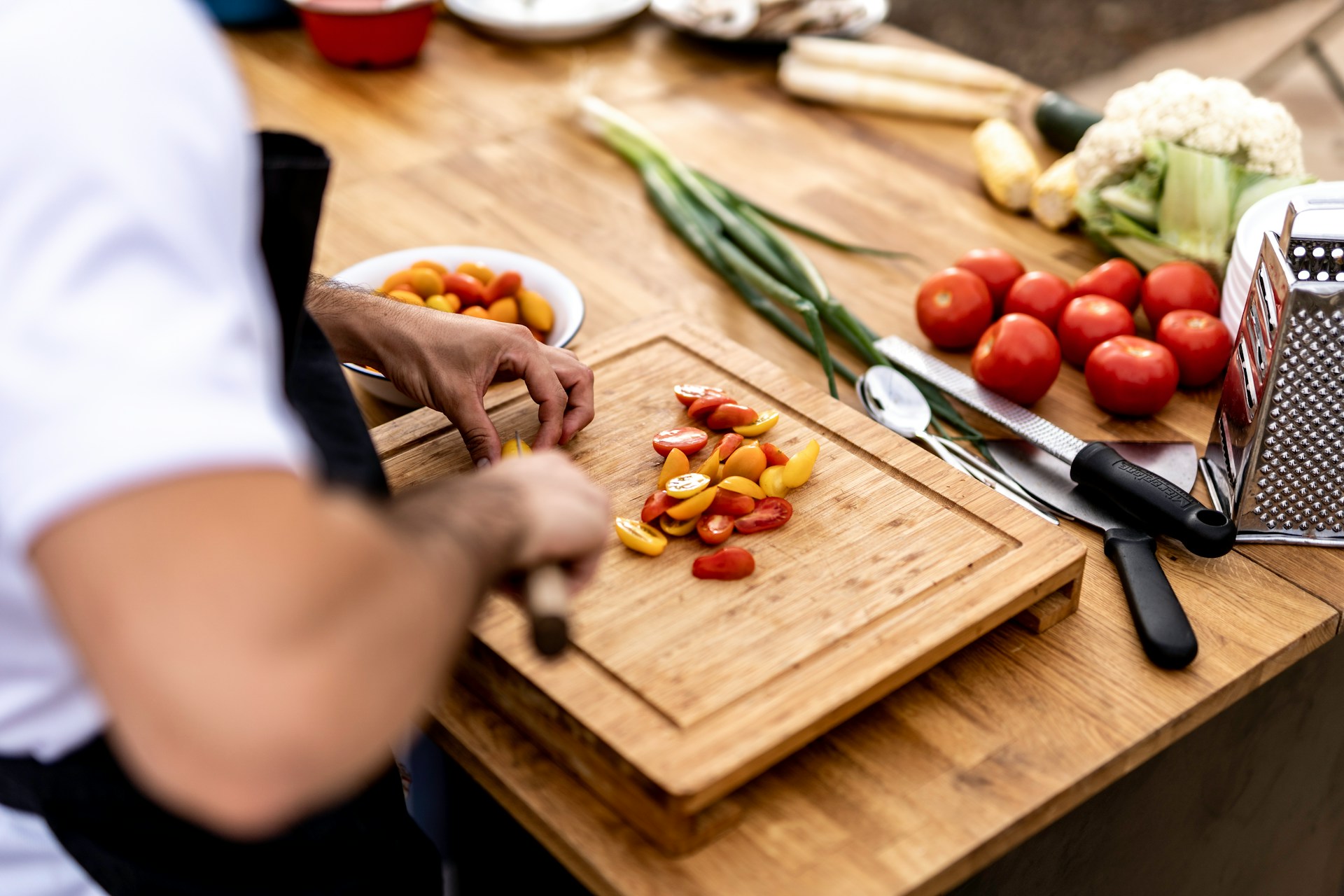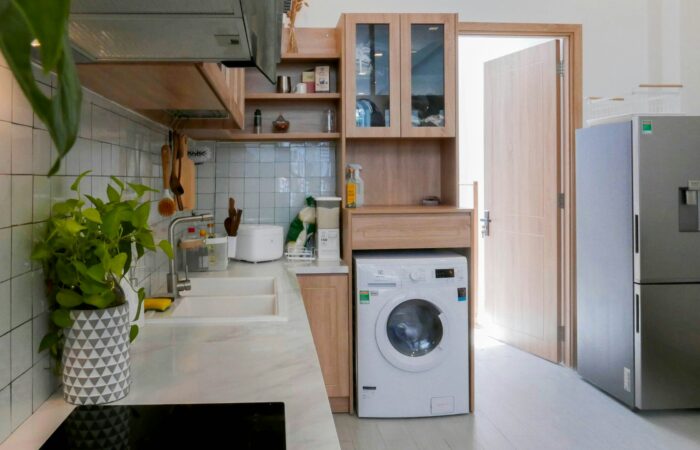
Reducing waste in the kitchen is not just trendy; it’s essential. Between food scraps, single-use plastics, and unnecessary packaging, the modern kitchen contributes significantly to global waste.
Fortunately, creating a zero-waste kitchen is more achievable than you might think. With the right tools and sustainable cooking habits, you can drastically reduce your environmental footprint while enjoying a functional, eco-friendly space.
This guide will take you through key steps, practical tools, and essential habits for transitioning to a zero-waste kitchen. You’ll also learn how using sustainable utensils and adopting eco cooking techniques can make a substantial difference.
Benefits of Having a Zero Waste Kitchen
Before we get into the “how,” let’s cover why creating a zero-waste kitchen is beneficial:
- Environmental Impact: Kitchens are responsible for a significant portion of household waste. By reducing waste, you’re actively decreasing landfill contributions and carbon emissions.
- Cost Savings: Reusable tools and smarter grocery habits save you money over time compared to disposable alternatives.
- Healthier Living: A zero-waste kitchen encourages fresh, whole ingredients, limiting processed foods often packaged with plastics.
- Stylish Sustainability: Eco-friendly and sustainable kitchen tools bring sleek, minimalistic designs into your cooking space while allowing you to make choices you can feel good about.
Start by Eliminating Kitchen Waste
Small changes can lead to big results. Begin your zero-waste journey by evaluating and reducing the most common sources of excess waste in your kitchen.
Identify High-Waste Items
- Single-Use Plastics: Items like plastic wrap, ziplock bags, and disposable utensils are often unnecessary.
- Packaging Waste: Many pantry staples are over-packaged in paper, plastic, or foil.
- Food Scraps: Uneaten leftovers, expired products, and vegetable peels make up the bulk of kitchen waste.
- Disposable Cleaning Items: Sponges, wipes, and paper towels create significant unnecessary waste.
Replace with Sustainable Alternatives
- Swap plastic wraps for beeswax wraps.
- Choose reusable glass containers instead of disposable ziplock bags.
- Dedicate a bin to composting food scraps rather than discarding them.
- Invest in washable cloths or eco-friendly kitchen towels instead of paper towels.
By making these gradual changes, you’ll eliminate a surprising amount of waste.
Essential Tools for a Zero Waste Kitchen
Upgrading your kitchen tools is one of the simplest ways to introduce sustainable practices. Here are the must-have sustainable utensils and resources:
Reusable Storage Solutions
- Glass Jars or Containers: Perfect for storing pantry items, meal prep ingredients, and leftovers.
- Silicone Food Bags: Lightweight, durable replacements for single-use ziplock bags.
- Fabric Produce Bags: Use these to grocery shop and store fresh fruits and vegetables.
Eco-Friendly Utensils
Swap out plastic or low-quality tools with:
- Bamboo Utensils: Biodegradable and highly durable in the kitchen.
- Stainless Steel Cooking Utensils: A long-lasting, zero-waste staple.
- Wooden Cutting Boards: Reduces the use of plastic in your kitchen while offering antibacterial properties.
Composting Tools
- Countertop Compost Bins: Conveniently store your food scraps until you’re ready to compost them. Bonus if the bin comes with an odor-reducing filter.
- Worm Bins (for advanced users): These composters break down scraps faster and produce nutrient-rich soil.
Sustainable Cooking Aids
- Cast Iron or Steel Cookware: These are non-toxic, last a lifetime, and reduce the need for replacements.
- Reusable Silicone Baking Mats: Eliminate the need for disposable parchment paper.
- Refillable Spice Jars: Buy spices in bulk to cut down on packaging waste.
Making your tools sustainable doesn’t just reduce your footprint; it elevates the style and functionality of your kitchen.
Develop Habits for Eco Cooking
Creating a sustainable zero-waste kitchen isn’t just about tools; habits matter just as much. Adopt these eco-cooking habits for an efficient, low-waste lifestyle:
Plan Your Meals
Meal planning dramatically reduces food waste. Create a weekly menu and list only the items you need in specific quantities. This strategy helps avoid excess or forgotten foods that might go bad.
Shop Smart
- Bring your reusable shopping bags to the market.
- Choose bulk foods whenever possible, avoiding excess plastic packaging.
- Support local farmer’s markets for fresher ingredients with less travel-related carbon footprint.
Preserve Leftover Ingredients
Got leftover herbs? Freeze them in olive oil for later use. Have overripe fruits? Blend them into smoothies or bake them into snacks. Cook creatively, using every part of the ingredient.
Compost Food Scraps
Set up a compost system in your kitchen or backyard and turn waste into nutrient-rich soil for plants. Ingredients like eggshells, coffee grounds, and vegetable peels are perfect for composting.
Buy High-Quality Ingredients
Choosing fewer, higher-quality ingredients often reduces packaging waste and encourages you to use up every last bite.
Build a Community Around Sustainability
You don’t have to go to zero waste alone. Surround yourself with like-minded individuals who can support and inspire your efforts.
Share Recipes and Experience
Join online zero-waste kitchen forums or social media groups. Share ideas for smarter recipes, sustainable utensils, and eco-cooking wins. Platforms like Pinterest or Instagram are full of inspiration.
Host Zero-Waste Potlucks
Invite friends to a dinner party where everyone brings a dish prepared with zero-waste principles. Highlight creative cooking techniques and encourage others to join the challenge.
Support Eco-Focused Brands
Vote with your dollar and invest in companies that make sustainability their mission. Brands offering reusable products, organic ingredients, or eco-friendly packaging help spread the impact of your choices.
Make Changes One Step at a Time
No kitchen will become completely zero waste overnight, and that’s okay. Start small, experiment with what works for your lifestyle, and scale up your efforts gradually.
Whether you swap out utensils, overhaul your shopping habits, or compost for the first time, every step counts.
Want to learn more about transforming your cooking habits or choosing the best sustainable utensils for your home? Keep reading our blog for in-depth guides and expert recommendations.
Subscribe To Get Update Latest Blog Post
No Credit Card Required








